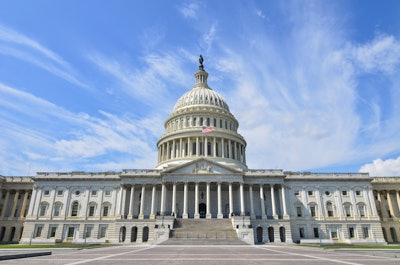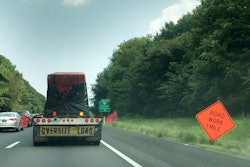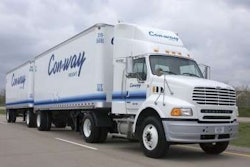
The House voted last week to set up the conference committee and on the 28 representatives — 16 Republicans and 12 Democrats — to represent the lower chamber.
If the conferees can produce a unified bill, it must be sent back to each chamber for passage before being sent to the White House for President Obama’s signature. The conference committee is on the clock, however. Current highway funding authorization expires Nov. 20. If the committee cannot produced a new bill by then, Congress may have to pass another short-term measure to ensure the Highway Trust Fund doesn’t go belly up.
Of key trucking interests on the table heading into the conference committee are potential inclusions of size and weight changes and, perhaps more pressing for owner-operators, fixing language in the bill that could potentially create havoc for about 450,000 carriers, many of them small fleets and owner-operators.
Entering the conference, both bills contain a few major trucking regulatory changes, highlighted by lawmakers’ direction to FMCSA to remove CSA scores from public view and to develop and implement a plan to fix the program’s faults before making the scores live again. The bills also would change driver drug testing rules to allow carriers to drug test drivers via hair test only and establish a pilot program for under-21 CDL holders to operate interstate. Click here to read more on the Senate version of the bill and here to read more on the House’s.

Pushback efforts over hiring standard ‘poison pill’ continue
Sources have told Overdrive that letters went out Nov. 11 to members of the House and Senate conference committee containing the signatures of a coalition of businesses and groups (including representatives from Apex Capital, the Western States Trucking Association, the National Association of Small Trucking Companies and six others) asking lawmakers to clarify the “Interim Hiring Standard” provision included in the House version of the bill.
As previously reported in Overdrive on the Channel 19 blog, the “hiring standard” is intended to establish clarity on what brokers/shippers and other carrier-contracting entities need to do to avoid what those entities see as a rash of “negligent selection” lawsuits that rely on flawed CSA Safety Measurement System methodology.
Many feel that standard is written in a manner, however, that could discourage business for the large number of Unrated and Conditional-rated carriers, which together make up a majority of the industry. The carrier, truck and driver numbers associated with such carriers were analyzed by safety rating in the story at this link.
The letters argue that the removal of CSA SMS percentile rankings from public view, also included in both Senate and House versions of the highway bill, should be viewed as “sufficient to guard against improper use of flawed SMS methodology.” By this view, the “Interim Hiring Standard” is a redundant provision in and of itself.
At once, the letter’s signatories also argue that, if some interim standard needs to be applied in the view of Congress, it ought to include all carriers currently authorized to operate, not just Satisfactory-rated and Unrated carriers. The details of the “Duncan amendment” attempted fix to this issue, as yet unsuccessful, notably excluded Conditional-rated carriers.
Read more about these issues at this link.
Senate deals setback to 33-foot twin trailer push
The full U.S. Senate has directed its highway bill conference committee members to not pursue an increase to the current federal combination trailer limit of 28 feet, following moves this year in Congress to up the limit to 33 feet.
Sen. Roger Wicker (R-Miss.) and Sen. Dianne Feinstein (D-Calif.) spearheaded the effort. The motion passed the Senate Tuesday, Nov. 10, by a vote of 56-31.
Members from both the House and Senate are meeting in a conference committee to produce a unified highway bill to bring back to their respective chambers.
Earlier this year, the Senate Appropriations Committee approved an amendment to a 2016 DOT funding bill that would allow 33-foot doubles. A House bill also included language that would allow twin 33s. Both of those bills, however, are on the backburner due to broader Congressional budget squabbles.









